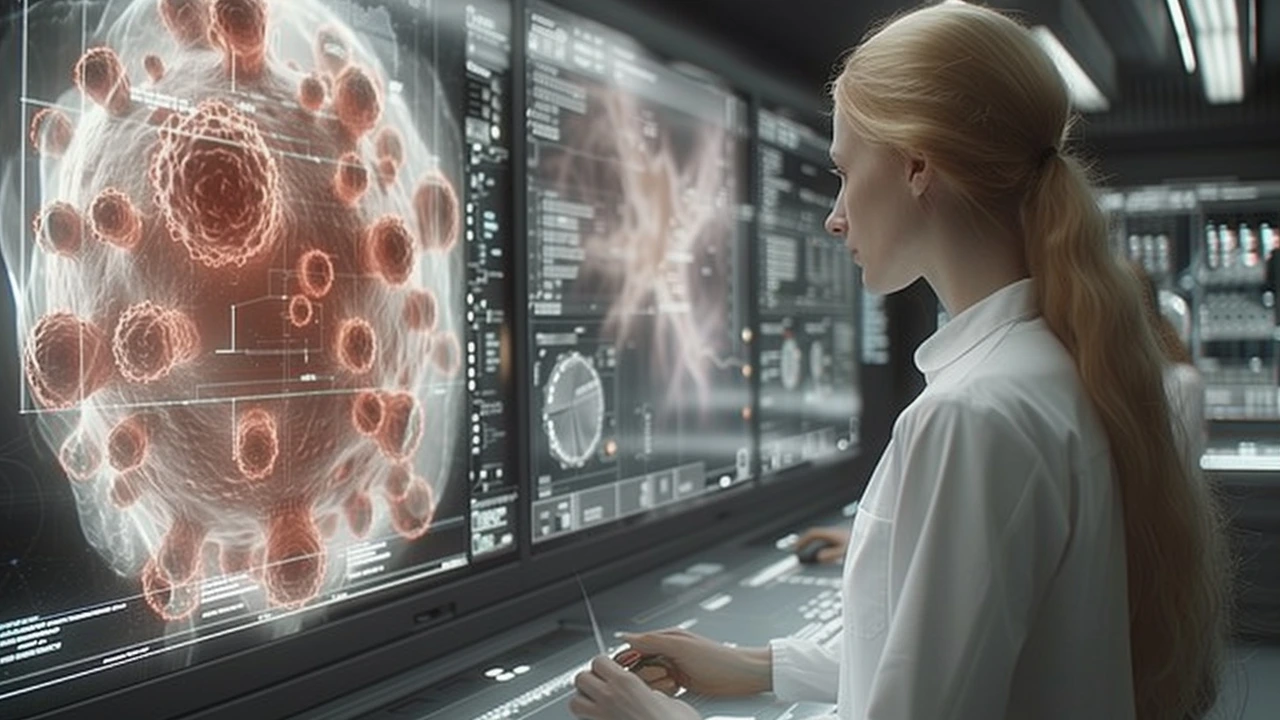The Genesis of Robotic Boons: Artificial Intelligence in Healthcare
Once a figment of sci-fi fantasies, Artificial Intelligence, alluringly known as AI, is demolishing boundaries, not just in conventional sectors such as manufacturing or navigation, but also in healthcare. As a tech enthusiast and an opportunistic blogger named Alaric, I’m immensely thrilled to delve into the canvas of artificial intelligence and its manifestation in our healthcare systems.
Our narratives about AI often oscillate between the timeless caricature of a societal savior and the slightly macabre image of a rogue sentient being. However, our understanding of AI must be extrapolated beyond the box of stereotypes. Artificial Intelligence is not an entity looming over humanity; instead, it is a tool - a powerful tool that we've been honing to revolutionize healthcare. Rather than picturing an AI-speaking robot, this article encourages you to envision more practical aspects, like AI-powered software detecting irregularities in medical scans and AI algorithms predicting patient's risk factors with uncanny accuracy.
Edging Towards Precision: Diagnostic and Predictive AI
Let's introduce the first superhero characteristic of AI - it's fiercely precise. It can sieve through piles of data, pinpoint valuable information, and utilize it for accurate diagnoses. Imagine having to scan an array of medical images, each teeming with million pixels, and locate a rogue cell - this is essentially a needle-in-a-haystack situation. However, when AI dives into the haystack, it emerges triumphantly with the needle.
An interesting study published in 2020 showed that the AI system could rival human radiologists in detecting breast cancer in mammograms – and in some aspects, even surpass them. Being a blogger in the AI realm, I've had chances to interact with professionals who work on such exciting technologies. Their narratives always carried a current of optimism. "We're not trying to replace human doctors," they clarify. Instead, the goal is to bolster their ability, provide them with a sidekick who can handle massive data, and never ever tire - sounds like a plan, doesn't it?
Patient-Driven AI: Personalized Medicine and Treatment Plans
Let's slide onto the next super element - AI is patient-centric. The future of medicine is personalization. It is about acknowledging the unique genetic makeup and lifestyle of each patient and developing a tailored treatment plan. AI just happens to be the key that can unlock this personalized plan.
Consider IBM Watson, a remarkable AI platform that can assimilate a patient's medical history, genetic data, and the latest medical research to recommend individualized treatment plans. Watson doesn't just stop at suggesting treatments; it goes ahead to forecast how a patient's conditions might evolve and predict the potential side effects of the treatments - and it achieves this with an astonishing level of accuracy. Medical professionals find these insights indispensable in decision-making processes.
As I write this, I am reminded of a personal encounter with AI. Some years back, I signed up for a genetic testing service, which, to my surprise, presented me with a comprehensive report suggesting potential health risks based on my genetic makeup. I was astounded by the potential of how AI and genomics could team up to deliver efficient healthcare. It felt like owning an instruction manual to my body and being able to foresee health issues and therefore seek necessary preventive measures.
Unwrapping the Digital Wrappers: AI in Hospital Administration
Apart from the clinical side of technology, AI is also playing a crucial role in hospital administration. Predicting patient inflow, managing patient data, optimizing hospital resources - these are just a few areas where AI pencils in its efficiency. Artificial Intelligence is the unseen vigilante who steps in, cuts through the red tape, and clears the path for seamless healthcare delivery.
Burning the midnight oil or poring over thousands of patient files - the life of healthcare professionals is dotted with such scenarios. And here comes AI, flying in like the superhero that it is, easing off some of that burden. Isn't that just a scene straight out of a comic book? With AI, hospitals can predict patient influx, prepare resources, and provide faster, efficient care. I jest not; this is straight-up Avengers-level stuff!
The AI Avatar: Conversational AI and Patient Engagement
Last but not least, AI has a friendly face – yes, we're talking about chatbots. AI-powered chatbots are the latest entrants in the healthcare scene. With natural language processing capabilities, these chatbots can engage with patients, answer their queries, and even provide reminders about medication.
Have you ever struggled to get through a hospital's customer service? I have, and it is as tiring as watching paint dry. Enter AI chatbots – they are available 24/7, require no coffee breaks and can juggle thousands of conversations without breaking a sweat. Patient engagement has never looked this promising.
Not just answering queries, these chatbots can proactively engage with patients - track their wellness, remind them about medication, and even nudge them to adopt healthier lifestyle habits. Having been on the receiving end of a health reminder from an AI-chatbot, I can vouch for its efficacy. It seems insignificant, but you'll be surprised how a well-timed reminder can become a nudge towards better health habits.
In conclusion, AI, like a superhero, isn't here to steal the show but is here to aid humanity. Even if it doesn't adorn the traditional superheroes' cape or mask, it does possess a unique superpower - the power to transform healthcare. So, on this fascinating journey powered by technological breakthroughs and dedicated human enterprise, let's make room for AI - the unseen hero in healthcare.

